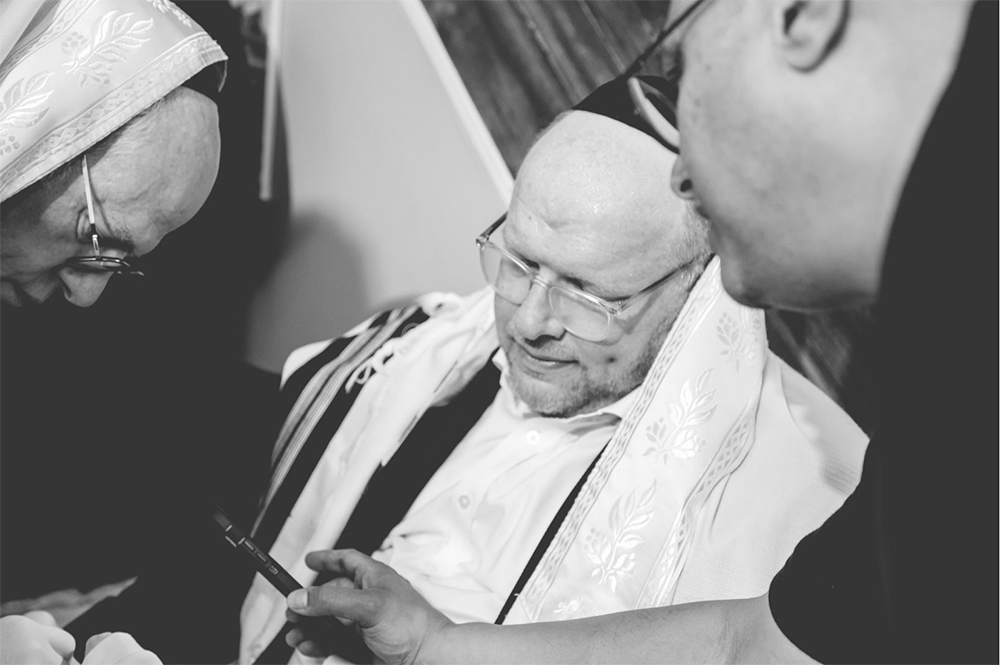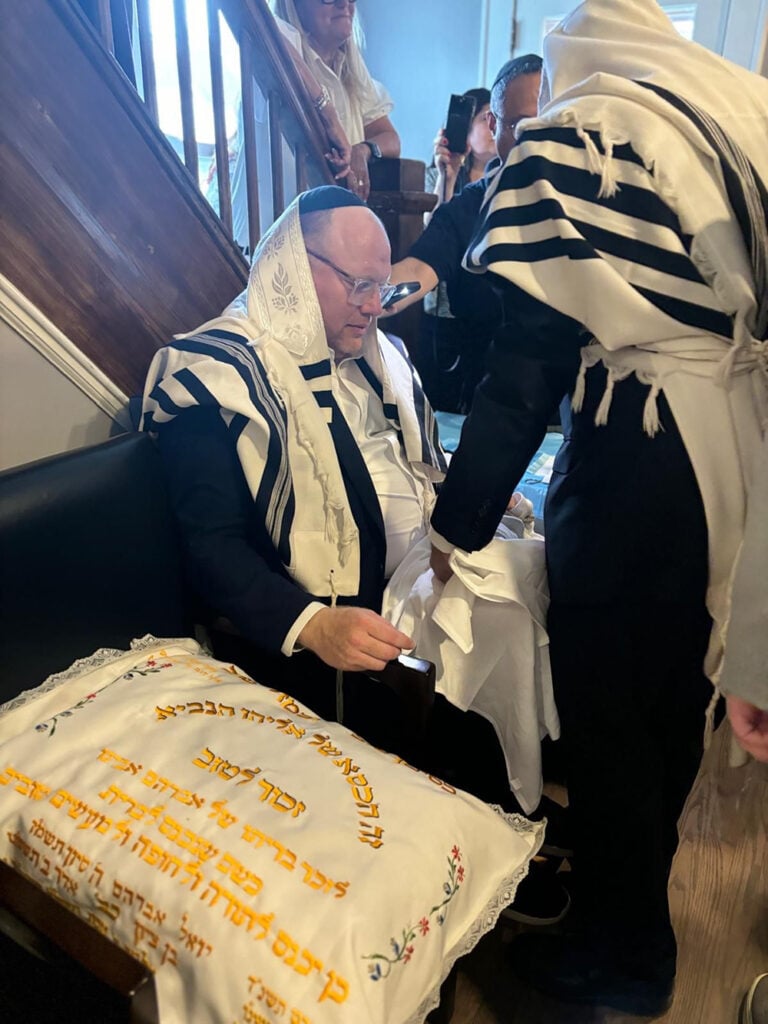
As our family, friends and close readers of this paper know, my wife and I became grandparents for the first time in the past month, with our daughter and son-in-law welcoming a son into the world. The birth and subsequent bris preparations came about two weeks earlier than the scheduled due date but thankfully, everything went relatively smoothly, if you count changing the location and timing of the bris three times within 18 hours as being smooth. Ultimately, the bris was held in our home on Erev Shabbat afternoon two weeks ago, with about 75-100 people packing into our living room and kitchen and overwhelming our a/c on one of the hottest days of the summer. Although it was quite hot inside and out, it was a very special occasion as the new baby boy was named after his great-grandfather and my father-in-law Rabbi Dr. Mordechai Glick, a”h, who passed away nearly three years ago.
Of course, as we finished cleaning up from the bris, my wife called me down to the basement to semi-calmly inform me that our sewer had chosen the same hour of the bris to back up and cause a flood in the third of our basement where the baby and his parents were staying. (For the record, our plumber who thankfully came right away believes there was a connection between the two—v’hameivin yavin). There went our Friday afternoon and any chance of going into Shabbat with a sense of elevation and happiness at the simcha—and out came the wet-dry vacuums and dehumidifiers. (Thanks as well to Chaverim of Bergen County for their help and fast response, as always.)
Although our basement is still a bit of a mess and not fully restored, our children have now moved back to their apartment and I have had a chance to begin to reflect a bit about becoming a zaydie. First, I want to let everyone know that we have really enjoyed the many mazal tovs my wife and I have received in person, by email, and by text and WhatsApp, and I have especially enjoyed hearing from my peers and elders who are already grandparents. Becoming a grandparent seems to me to be of a different mettle and quality of mazal tov. Many of our grandparent friends used phrases such as “Welcome to the grandparents club!” or “Being a grandparent is the best,” phrases which I have certainly heard said before but never really understood … until now.

My sense that grandparenthood is a much different animal than parenthood began right when our grandson was only a few hours old and I had the chance to hold him for the first time. While holding him, my main thought was “Wow … this feels so different from when I held my children for the first time!” It’s hard to truly quantify but it just felt different. As a new father holding our children for the first time, I, like most parents, I believe, felt almost overwhelmed by the huge and awesome responsibility and worry that comes with parenthood. But as a new grandfather, it was a completely different feeling of happiness for our daughter and son-in-law, happiness that I and my wife are able to be there for them, tinged slightly by the recognition that we are getting older and becoming savtas and zaidys, like our parents before us.
This new sense and feeling reminds me of something I once read by Rabbi Lord Jonathan Sacks, zt’’l, who explained in the name of his predecessor, Rabbi Lord Jakobovits, zt’’l, why we bless our children today asking that Hashem should make them just like Ephraim and Menashe, recalling the bracha that Yaakov gave his two grandsons, along with Yosef. Rabbi Sacks explained,
Although there are many instances in Torah and Tanach in which parents bless their children, this is the only example of a grandparent blessing grandchildren. Between parents and children, he said, there are often tensions. Parents worry about their children. Children sometimes rebel against their parents. The relationship is not always smooth.
Not so with grandchildren. There the relationship is one of love untroubled by tension or anxiety. When a grandparent blesses a grandchild they do so with a full heart. That is why this blessing by Jacob to his grandchildren became the model of blessing across the generations. Anyone who has had the privilege of having grandchildren will immediately understand the truth and depth of this explanation.
Rabbi Sacks is certainly correct on this and yashar koach to him for his insight into the quality and intrinsic difference between fatherhood and zaidyhood.
One final thought to share is that I have noticed that since the baby was born, I feel a strong and almost unquenchable desire to see and hold my new grandson as often as possible. While I certainly love all my children—all of whom are way too large to be held today—I am able to manage generally fine if I don’t see them for a few weeks or even longer (such as a full year in Israel) and I don’t have the same, almost impulsive, urge to see them and hold them as I do with my new grandson today. I relish any and all opportunities to be able to hold my grandson and I especially enjoy holding him when he is awake and looking around curiously at the world around him. It’s not generally like me to feel so powerfully drawn to another human being but this is what being a new grandparent brings out in me, it seems. While I am told this sense may pass or cool with time, it’s a nice feeling and I hope it will only grow and strengthen in the years ahead.










